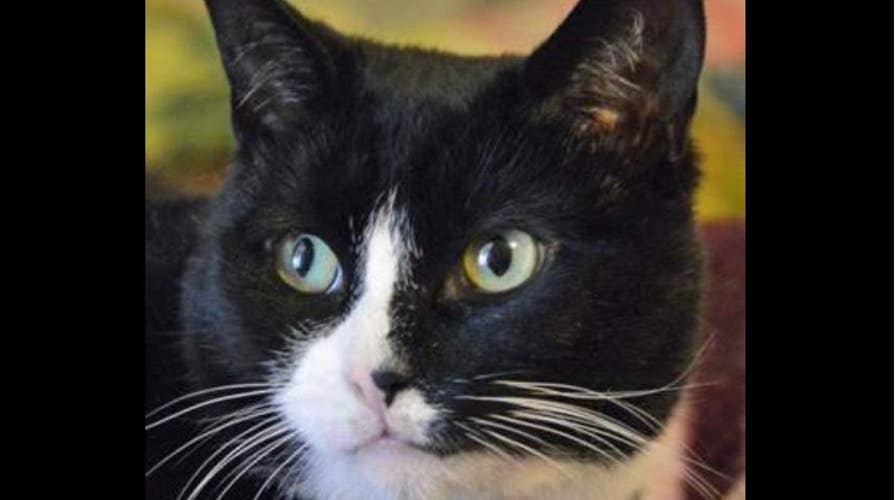Fox News Flash top headlines for April 22
Fox News Flash top headlines are here. Check out what's clicking on Foxnews.com.
Get all the latest news on coronavirus and more delivered daily to your inbox. Sign up here.
Two pet cats in New York state tested positive for coronavirus, federal officials confirmed on Wednesday.
The cats had mild respiratory illnesses and are expected to recover. Authorities believe they contracted the virus from people in their households or local neighborhoods.
These results mark the first cases in companion animals in the U.S. The two cats live in different parts of the state.
CORONAVIRUS HAS MUTATED INTO AT LEAST 30 DIFFERENT STRAINS, STUDY FINDS
Seven tigers and lions at the Bronx Zoo have also tested positive, but the known number of animals infected by COVID-19 worldwide is small.

Two pet cats tested positive for COVID-19 in New York. (AP)
Authorities have said there's no indication that the animals are transmitting the virus to humans.
“We don’t want people to panic. We don’t want people to be afraid of pets” or to rush to test them en masse, Dr. Casey Barton Behravesh, a Centers for Disease Control and Prevention (CDC) official who works on human-animal health connections, told The Associated Press. “There’s no evidence that pets are playing a role in spreading this disease to people.”
CDC guidance recommends that people prevent their pets from interacting with people or animals outside their homes. However, health officials don't recommend testing pets unless the animal is known to have been exposed to a person with COVID-19 or has symptoms and other tests have ruled out other potential causes.
CORONAVIRUS LINGERED IN WOMAN'S EYES LONG AFTER IT CLEARED FROM HER NOSE, STUDY SHOWS
As of Wednesday evening, there were 839,836 cases of COVID-19 in the United States, with at least 46,079 confirmed deaths.
There have been a handful of reports outside the U.S. of pet dogs or cats becoming infected after close contact with contagious people, including a Hong Kong dog that tested positive and later died.
A tiger at the Bronx Zoo had what was believed to be the first confirmed coronavirus case in an animal in the U.S. or a tiger anywhere.
The Associated Press contributed to this story.









































